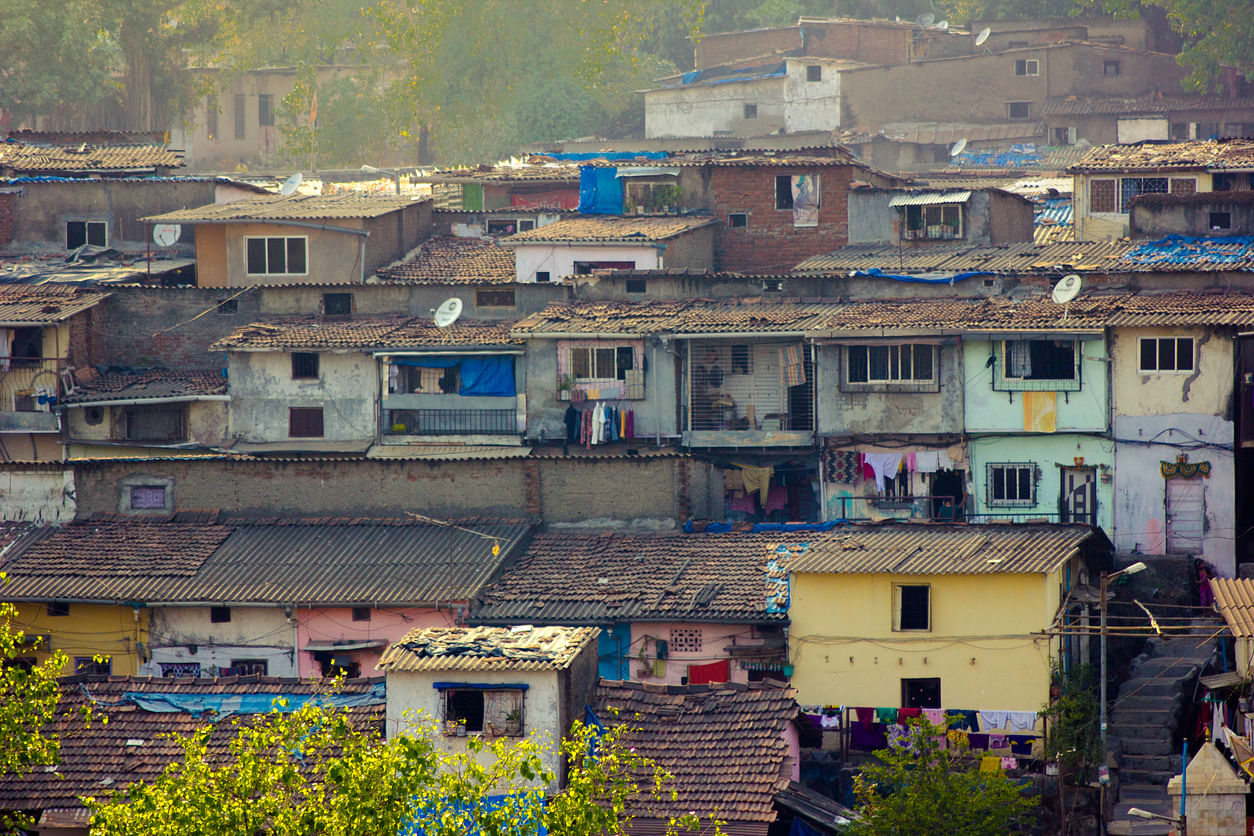
This time last year, disturbing images of migrants making their way to villages inundated the internet. Pictures of thousands of men, women and children covering kilometres on foot amidst a global pandemic left the country wondering what was more dangerous for the migrants — a virus or living in the city.
The long-existing problem of shortage of affordable formal housing in India has pushed 40% of people to move to overcrowded informal and unauthorised colonies and slums. Slum-dwellers live in congested and insecure localities, in constant danger of eviction and displacement. Over 65 million people live in urban slums or informal settlements with poor living conditions, inadequate access to safe water and sanitation, overcrowding and insecure residential status. Research conducted by Prindex suggests that one out of every four Indians is scared of losing their home.
Security of land tenure and stable access to housing have the potential to unlock massive economic and social value for India’s poorest. Addressing ‘housing poverty’ in India can be a simultaneous weapon against many other developmental issues — better physical safety and public health, sanitation, livelihoods, dignified living and human development.
Affordable housing has emerged as a priority in the urban development sector in the aftermath of the pandemic. Even as master planners and city administrators design for the post-pandemic world, social entrepreneurs are taking on the challenge to make our cities more equal. Bandhu is a social enterprise that aims to make the process of urbanisation more equitable and sustainable. It does so by maximising transparency in the rural-to-urban migration decisions and thus, empowering the otherwise vulnerable migrant workers. India Migration Now (IMN) utilises its niche expertise in migration research and policy along with its extensive network of government and private sector, including non-profit partners, to develop insights and solutions for low-income migrant households in India.
Entrepreneurs, nonprofits, philanthropists and policy-makers need to collectively develop meaningful interventions for the economically and socially disadvantaged. We witnessed a strong rise in such intentional collaborations last year.
In 2012, the housing sector fell short by 18.78 million units, which is expected to increase to 20 million by 2022. Of this, 95% belong to low-income households (earning less than Rs 2 lakh per annum). The scarcity of low-cost housing in the country forces the economically weaker sections to rent in slums and unauthorised colonies. Innovations in housing fabrication holds a potential solution here. For example, ‘Pop-up Housing’ is one social venture which is trying to make housing affordable for economically weaker sections. Their recyclable homes built using self assemble-able prefabricated material use underutilised space and can last up to 30 years and cost under Rs 50,000.
Technology for tenure security
In rural India, there are 54 million landless households whose opportunities are limited to daily wage labour, in the absence of access to land as a means of sustainable livelihood. We also have a large population of vulnerable and marginal communities at the risk of losing their land rights because of lack of education, poor understanding of land systems and difficulty in accessing legal aid. Waatavaran, a non-profit organisation, is leveraging technology to secure land claims. Through GIS-based land-mapping and satellite imagery, Waatavaran is working with tribal households and other traditional forest-dwelling communities to help them claim legal rights on forest lands in accordance with the Forest Rights laws which recognise forest-dwellers as both: the real users and custodians of forests.
Land-related disputes contribute to two-third of all pending cases in the courts, with an average timeline of about 20 years to resolve the cases. Women’s ability to claim and secure inheritance and land ownership is still amongst one of the most challenging issues. In the absence of proper land records and formal ownerships, small and marginal farmers fail to access entitlements such as farm input subsidies and crop insurance and other welfare schemes. Geospatial and cadastral technology to develop detailed and real-time maps, empowered communities and local partnerships have the potential for long-term sustainable solutions. Project Pioneer — a collaboration between Omidyar Network India and The/Nudge Foundation — nurtures innovation in land inclusivity by providing seed grants, mentorship and ecosystem support to social entrepreneurs and also facilitates high-quality research through the Research Innovation Program for think-tanks and researchers working in this underserved problem area.
Solutions for housing poverty
Some of the most promising opportunities to solve housing poverty in India are: Provision of titling and tenure security; Legal aid, awareness, and dispute resolution; Innovations for affordable housing; Access to welfare schemes and financial services; Open data solutions connecting the government, private-entities and the vulnerable societal sections; and a more focused cultural and economic push for property rights of women and facilitation rights of vulnerable populations/ tribals.
Social entrepreneurs taking on the ‘housing and property inclusivity’ challenges of the country need special support, given the complex nature of the sector, legislations and bureaucratic differences in various regions of the country. There is an urgent need for innovations and public-private partnerships to make leapfrog improvements in the living conditions and security of the vulnerable. Secured property and land rights form the basis for physical safety, livelihoods, poverty alleviation and social dignity. The security of a safe home has the potential to unlock massive economic and social value for the most vulnerable populations of India.
(The writer is the CEO of The Nudge Centre for Social Innovation)